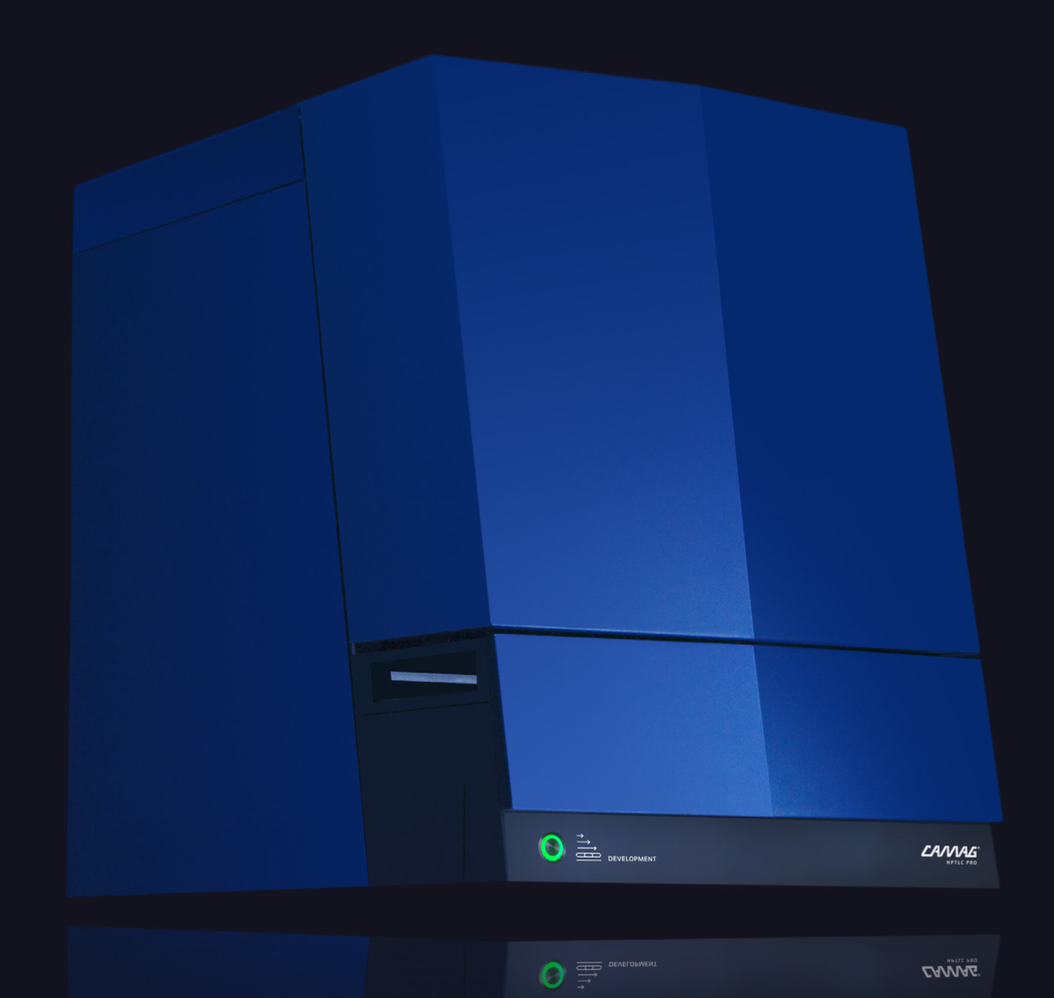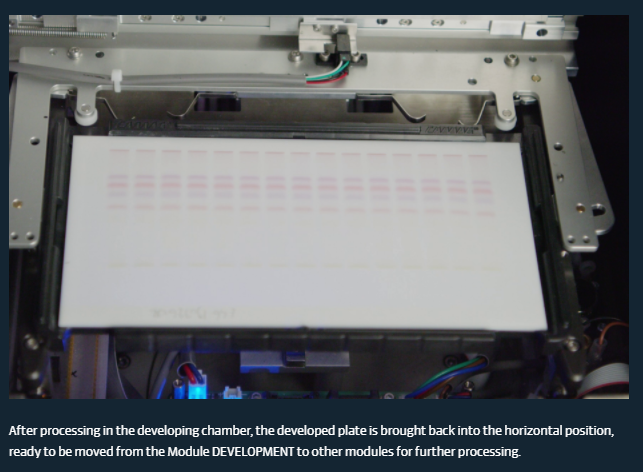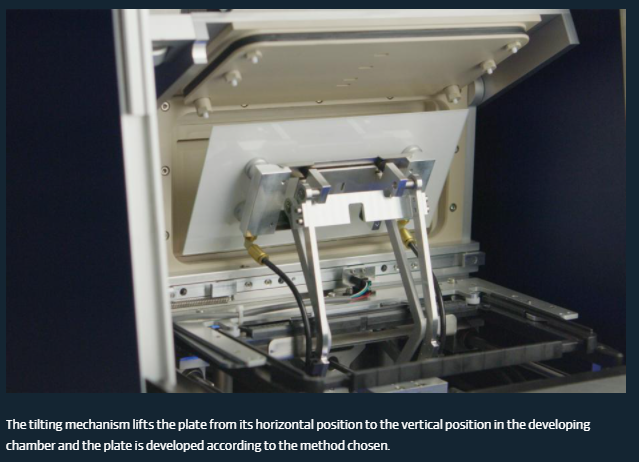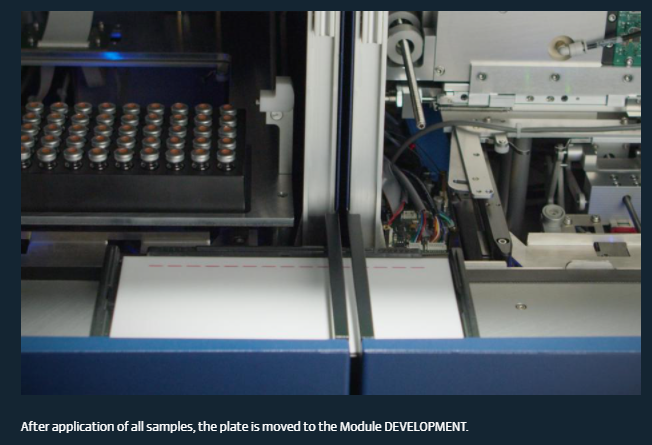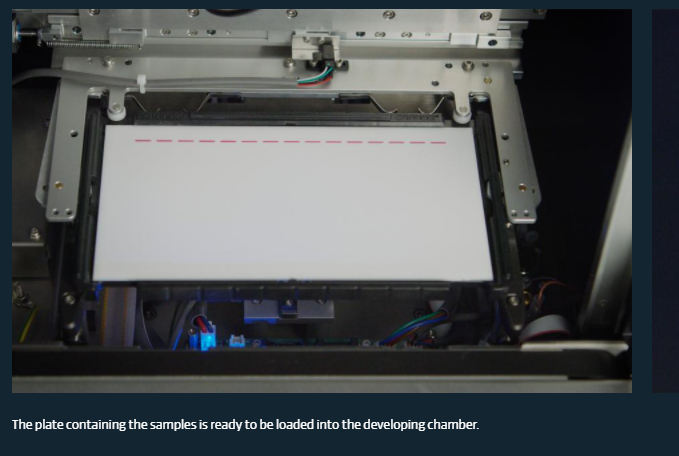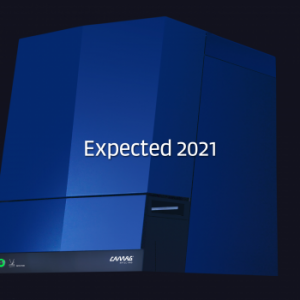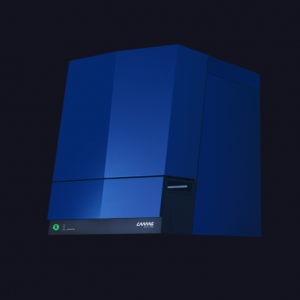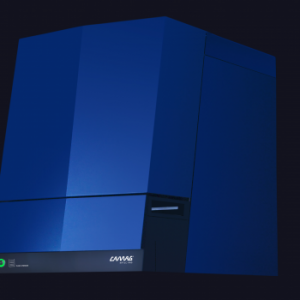HPTLC PRO Module DEVELOPMENT
The HPTLC PRO Module DEVELOPMENT is part of the CAMAG® HPTLC PRO SYSTEM – the first fully automated HPTLC system worldwide.
The sophisticated developing chamber of the CAMAG® HPTLC PRO Module DEVELOPMENT revolutionizes the development step: its geometry allows for the full control of the gas phase prior to and during chromatography, enabling the Module DEVELOPMENT to obtain highly reproducible analytical results, while the duration of pre-conditioning and activation of the stationary phase is significantly reduced.
Controlled by the CAMAG® HPTLC Software visionCATS, the Module DEVELOPMENT allows for the preparation of several analysis files, which can be executed sequentially, enabling the autonomous development of up to five different HPTLC glass plates (20 × 10 cm) with up to three different developing solvents. Users have the choice to operate a module as stand-alone or as part of the HPTLC PRO SYSTEM. If two or more modules are connected to form a system, a conveyor moves the HPTLC plate from one module to the other.
Key Features:
- Part of the fully automated HPTLC PRO SYSTEM
- Development of up to 5 HPTLC plates (20 x 10 cm)
- Supports up to 3 different developing solvents
- HPTLC glass plates (20 x 10 cm)
- Software-controlled by visionCATS
Key Benefits:
- Low chamber volume for better control of the gas phase
- Fast activation and pre-conditioning of the stationary phase (due to active circulation of the gas phase)
- Full control of the gas phase during development
- Sensor-controlled constant volume of the developing solvent in the chamber during development
- Significant time savings due to active gas phase handling
- Optimized cleaning procedure between different developing solvents
- User-independent reproducibility
Technical Specifications
Brochures
Videos
This video tutorial shows the HPTLC PRO Module DEVELOPMENT and covers the following steps:
– plate loading
– chamber preparation
– plate tilt in
– plate preparation
– development
– plate tilt out
– chamber preparation
– plate ejection

